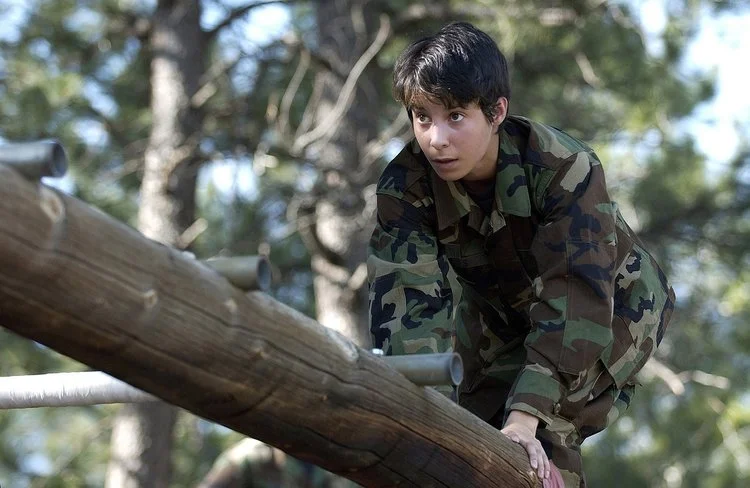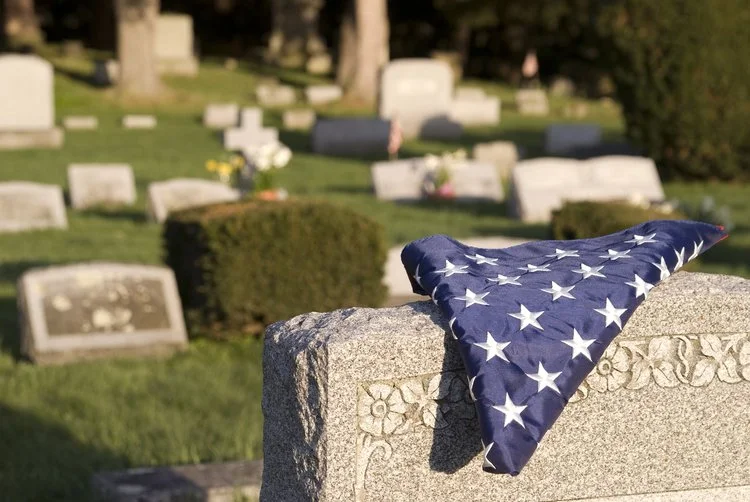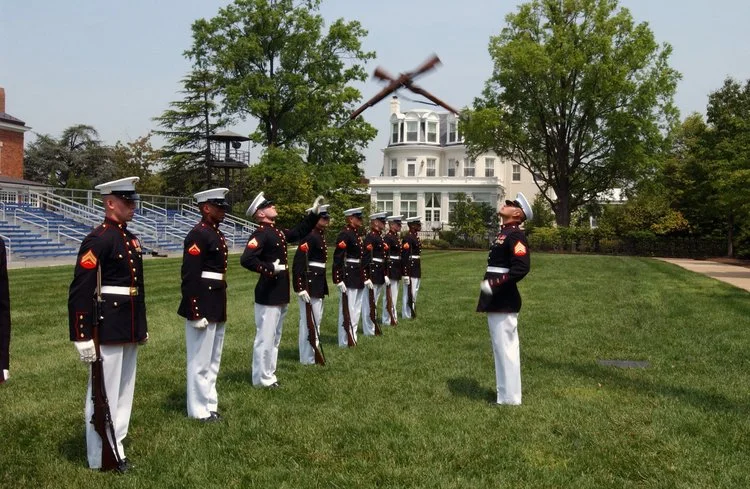I wrote the following column in 2005 after my friend Marc Tace died of muscular dystrophy. This week marks 20 years since Marc’s dad, a Marine colonel, died of a heart attack while serving overseas.
I’ve been thinking a lot lately about Marc and his family. On Thursday, I was invited to have brunch at the Commandant of the Marine Corps’ house due to my book, “Dinner with the Smileys,” being included in the First Lady of the Marine Corps’ recommended reading list. Marc’s mom, Heather Tace, is one of the proudest Marine wives I’ve ever known. Much of what I know about the United States Marine Corps and its culture comes from Mrs. Tace.
This also is the time of year when many restaurants and convenience stores run their annual Muscular Dystrophy Association shamrock fundraiser.
With these things in mind, I (re)introduce to you the Tace family:
Like most military children, Marc Tace knew how to wait. He knew how to wait for his Marine Corps dad’s next job, his next homecoming and the next deployment. Marc knew how to wait even when his dad’s absences could only be explained by the words Semper Fi. And for a child who’s missing his dad, that’s a hard concept.
But unlike most military children, Marc waited without moving. Diagnosed with muscular dystrophy at the age of four, Marc was wheelchair-bound by the time he and I were in elementary school. I remember his wheelchair — decked out with 17th Street Surf Shop and USMC stickers — like I remember my grandparents’ brown Volvo station wagon coming up the street. Marc’s wheelchair was simply part of my elementary school experience — long before “inclusion” was a word tossed around in newspaper editorials.
And Marc’s mom, Mrs. Tace, became somewhat like a beloved “aunt” I looked forward to seeing in the school hallway as she helped Marc with the things that he needed. There she’d come down the hall, dressed in a jeweled sweatshirt with the American flag on it, singing something like, “I love you, you love me, we’re a happy family” to me, and Marc would roll his eyes with feigned embarrassment.
But my favorite memory of Mrs. Tace and Marc was when they found me crying in the hallway of the junior high school.
“Now, we can’t have our little Sarah crying,” Mrs. Tace said, and then she let Marc and me play hooky from school and took us to get doughnuts.
Later, Marc and I went to the same high school and college. And he was always there. And so was Mrs. Tace. When both our dads were away on military assignments, our families spent Easters and Thanksgivings together. And over time, Marc’s wheelchair got bigger and more complex. There were more machines. More contraptions keeping him still. Keeping him waiting.
Then I got married, moved away and had children. In some ways, I had left my military childhood behind. I no longer knew when my dad was out on detachment or home with mom. But each time I went home and saw Marc, I was reminded how faithfully he still waited, the world coming to him as he waited for his dad’s homecomings.
But in 1994, Col. Tace died of a massive heart attack while serving overseas and never came home. Everyone wondered, “What will Mrs. Tace and Marc do? How will they manage?” No one could have anticipated the strength and support of the greater military family that would keep them going. No one could have anticipated the way Marc would rise to the occasion and become the father figure for his family. And no one anticipated (although we should have) the way the Marines would take care of their own and embrace Marc and his family.
Last week, more than 10 years after Col. Tace’s death, it was that same strength and support that cradled Mrs. Tace when she laid Marc to rest next to his dad. With an American flag in one hand and the Marine Corps flag in the other, Mrs. Tace kissed her son’s coffin and told him, “Don’t be afraid. I’m here with you.” Just then, a military jet screeched overhead, rustling the flaps of the tent we all stood under, and I smiled as I thought, “Leave it to a Marine to arrange a fly-by for his son’s funeral.”
On June 19, muscular dystrophy finally took Marc Tace’s life, just a few months shy of his 30th birthday. Yet, in some way, death also freed Marc. Because the morning Mrs. Tace found her son lying still in his bed wasn’t any ordinary day. No, the day Marc slipped from this life to the next, to find what he’d been waiting for, was Father’s Day.
And so it was, on the day set aside for fathers and their children, Marc went home to be with his dad, where this time the Marine stood waiting for his son. Semper Fi.








